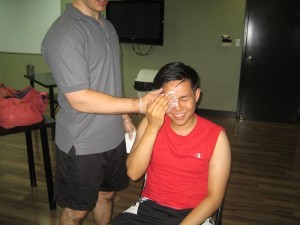Vernal keratoconjunctivitis is a condition affecting the cornea and conjunctiva of both eyes. This is an infrequent but periodic condition that affects young individuals and those who mainly reside in areas with hot-dry climates. It typically arises during the spring season.
The condition is likely to occur among individuals with a family history of allergic ailments and those suffering from atopic rhinitis, eczema or other environmental allergies.
In this condition, the conjunctiva of the eye is inflamed where it turns reddened or pinkish. Only one eye or both can be affected and accompanied by irritation, inflammation and watery drainage. Remember that both the cornea and conjunctiva are affected. In most cases, the condition settles among children automatically before or after reaching puberty.
Risk factors
- Family history of allergies
- Presence of other allergy-related ailments such as asthma, allergic rhinitis or eczema
- Spring and summer season
- Environmental or occupational exposure to allergens responsible for seasonal allergies
What are the indications?

The signs of vernal keratoconjunctivitis generally include:
- Itchiness and redness of the eyes
- Eye pain and inflammation with a gritty sensation within the eye
- Eyelid might have small-sized nodules or might droop and twitch
- Light sensitivity
- Blurry vision
- Continuous drainage of watery fluid from the eyes
It is important to note that some individuals might suffer from symptoms throughout the year while around 60% of cases have symptoms during the winter season.
Management of vernal keratoconjunctivitis
Vernal keratoconjunctivitis requires treatment to properly control its potentially blinding effect. In most cases, it aims on identifying and controlling the triggers, providing relief to the symptoms and moderating the immune response by the doctor.
Some of the commonly used treatment measures include:
- Dealing with the chronic nature of vernal keratoconjunctivitis by using drugs such as oral antihistamines and mast cell stabilizers. These drugs work by preventing the condition from worsening.
- Other drugs might be given to provide relief to the symptoms such as corticosteroids, immunosuppressants, oral aspirin, cyclosporine and decongestants.
- Avoiding exposure to outdoor allergens and regulating indoor irritants.
- Applying a cold compress to lessen the discomfort and staying in an air-conditioned room.
- Immunotherapy might be suggested which involves the desensitization of the body and preventing it from overly reacting to the external triggers.
- Corrective surgery might be an option to deal with corneal injury, cataract and eye inflammation.
- Avoid using any contact lenses and wear eye glasses instead.
